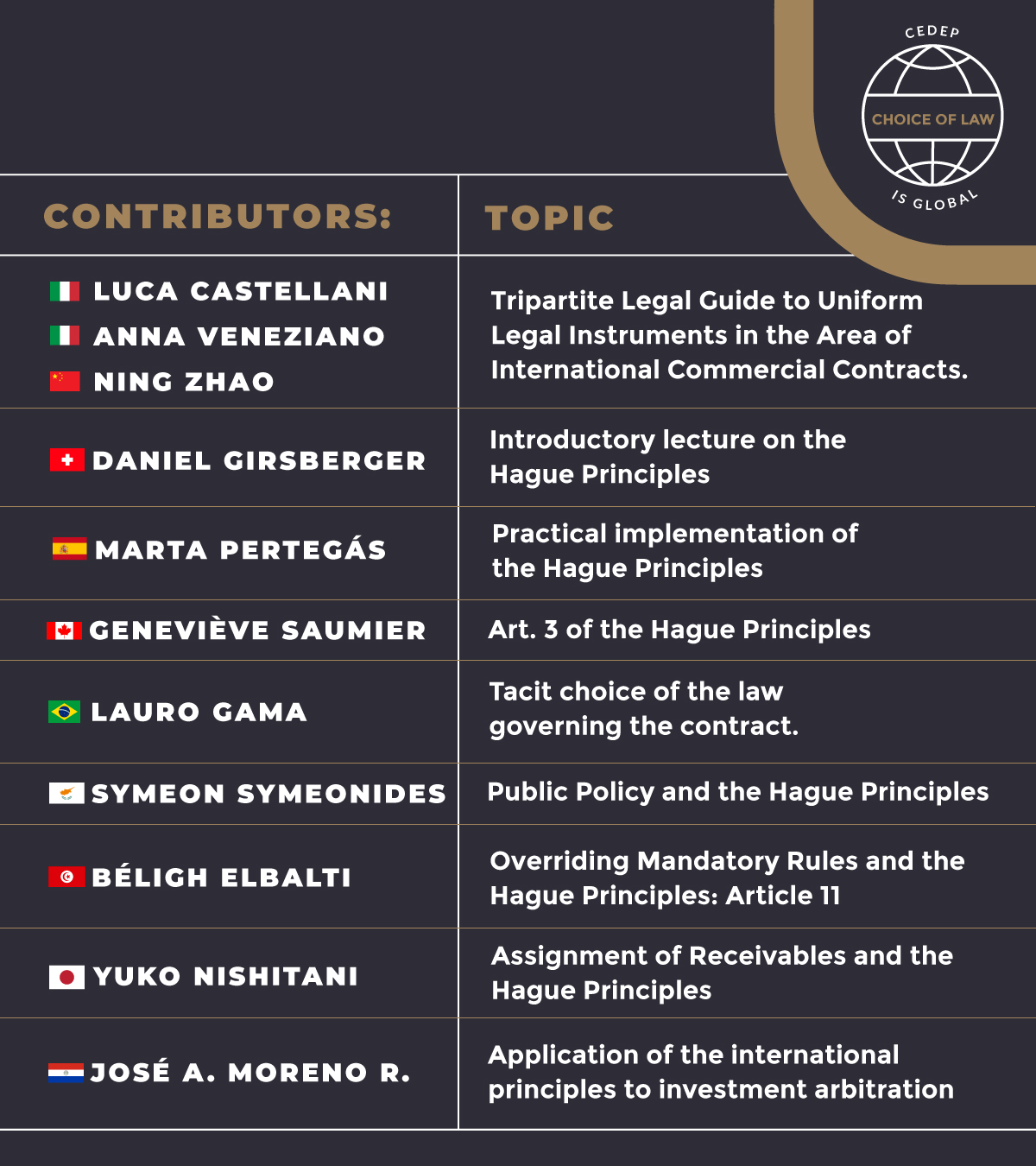The latest issue of the „Praxis des Internationalen Privat- und Verfahrensrechts (IPRax)“ features the following articles:
(These abstracts can also be found at the IPRax-website under the following link: https://www.iprax.de/en/contents/)
H.-P Mansel/K. Thorn/R. Wagner: European Conflict of Law 2021: The Challenge of Digital Transformation
This article provides an overview of developments in Brussels in the field of judicial cooperation in civil and commercial matters from January 2021 until December 2021. It gives information on newly adopted legal instruments and summarizes current projects that are presently making their way through the EU legislative process. It also refers to the laws enacted at the national level in Germany as a result of new European instruments. Furthermore, the authors look at areas of law where the EU has made use of its external competence. They discuss both important decisions and pending cases before the CJEU as well as important decisions from German courts pertaining to the subject matter of the article. In addition, the article also looks at current projects and the latest developments at the Hague Conference of Private International Law.
H. Wais: The Applicable Law in Cases of Collective Redress
Both the European and the German legislator have recently passed legislation aimed at establishing access to collective redress for consumers. As European conflict of law rules do not contain any specific rules on the applicable law in cases of collective redress, the existing rules should be applied in a way that enables consumers to effectively pursue collective actions. To that aim, Art. 4 (3) 1st S. Rome II-Regulation provides for the possibility to rely on the place of the event that has given rise to the damages as a connecting-factor for collective redress cases in which mass damages have occurred in different states. As a consequence of its application, all claims are governed by the same applicable law, thereby fostering the effectiveness of collective redress.
M. Lehmann: Locating Financial Loss and Collective Actions in Case of Defective Investor Information: The CJEU’s Judgment in VEB v BP
For the first time, the CJEU has ruled in VEB v BP on the court competent for deciding liability suits regarding misinformation on the secondary securities market. The judgment is also of utmost importance for the jurisdiction over collective actions. This contribution analyses the decision, puts it into larger context, and discusses its repercussions for future cases.
M. Pika: Letters of Comfort and Alternative Obligations under the Brussels I and Rome I Regulations
In its judgment of 25 November 2020 (7 U 147/19), the Higher Regional Court of Brandenburg ruled on special jurisdiction regarding letters of comfort under Article 7 No. 1 Brussels I Regulation. While the court left the decision between lit. a and lit. b of that Article open, it ruled that either way, the courts at the domicile of the creditor of the letter of comfort (in this case: the subsidiary) have no special jurisdiction. This article supports the court’s final conclusion. In addition, it assesses that Article 7 No. 1 lit. b Brussels I Regulation on services may apply to letters of comforts given the CJEU’s decision in Kareda (C-249/16).
B. Hess/A.J. Wille: Russian default interests before the District Court of Frankfort
In its judgment of February 2021, the Landgericht Frankfurt a.M., applying Russian law, awarded a three-month interest rate of 37% to a defendant domiciled in Germany. When examining public policy, the regional court assumed that there was little domestic connection (Inlandsbezug), as the case was about the repayment of a loan issued in Moscow for an investment in Russia. However, the authors point out that the debtor’s registered office in Hesse established a clear domestic connection. In addition, the case law of German courts interpreting public policy under Article 6 EGBGB should not be directly applied to the interpretation of Articles 9 and 21 of the Rome I Regulation.
D. Looschelders: Implied choice of law under the EU Succession Regulation – not just a transitional problem in connection with joint wills
The decision of the German Federal Supreme Court focuses on the question, under which conditions an implied choice of law may be assumed within the framework of the EU Succession Regulation (Regulation No 650/2012). In this particular case, an implied choice of German law as the law governing the binding effect of the joint will drawn up by the German testator and her predeceased Austrian husband was affirmed by reference to recital 39(2) of the EU Succession Regulation. Actually, the joint will of the spouses stipulated the binding effect as intended by German law. As the spouses had drawn up their will before the Regulation became applicable, the question of an implied choice of law arose in the context of transition. However, the decision of the German Federal Supreme Court will gain fundamental importance regarding future cases of implied choices of law for all types of dispositions of property upon death, too. Nevertheless, since the solution of the interpretation problem is not clear and unambiguous, a submission to the ECJ would have been necessary.
M. Reimann: Human Rights Litigation Beyond the Alien Tort Claims Act: The Crucial Role of the Act of State Doctrine
The Kashef case currently before the federal courts in New York shows that human rights litigation against corporate defendants in the United States is alive and well. Even after the Supreme Court’s dismantling of the Alien Tort Claims Act jurisdiction remains possible, though everything depends on the circumstances. And even after the Supreme Court’s virtual elimination of federal common law causes of action claims under state or foreign law remain possible, though they may entail complex choice-of-law issues.
Yet, so far, the most momentous decision in this litigation is the Court of Appeals’ rejection of the defendants’ potentially most powerful argument: the Court denied them shelter under the act of state doctrine. It did so most importantly because the alleged human rights abuses amounted to violations of jus cogens.
Coming from one of the most influential courts in the United States, the Second Circuit’s Kashef decision adds significant weight to the jus cogens argument against the act of state doctrine. As long as the Supreme Court remains silent on the issue, Kashef will stand as a prominent reference point for future cases. This is bad news for corporate defendants, good news for plaintiffs, and excellent news for the enforcement of human rights through civil litigation.
J. Samtleben: Paraguay: Choice of Law in international contracts
To date, Paraguay is the only country to have implemented into its national law the Hague Principles on Choice of Law in International Commercial Contracts. Law No. 5393 of 2015, which closely follows the Hague model, owes its creation primarily to the fact that the Paraguayan delegate to the Hague was actively involved in drafting the Principles. Unlike the Principles, however, Law No. 5393 also regulates the law governing the contract in the absence of a choice of law, following the 1994 Inter-American Convention on the Law Applicable to International Contracts of Mexico. Contrary to the traditional rejection of party autonomy in Latin America, several Latin American countries have recently permitted choice of law in their international contract law. Paraguay has joined this trend with its new law, but it continues to maintain in procedural law that the jurisdiction of Paraguayan courts cannot be waived by party agreement.






